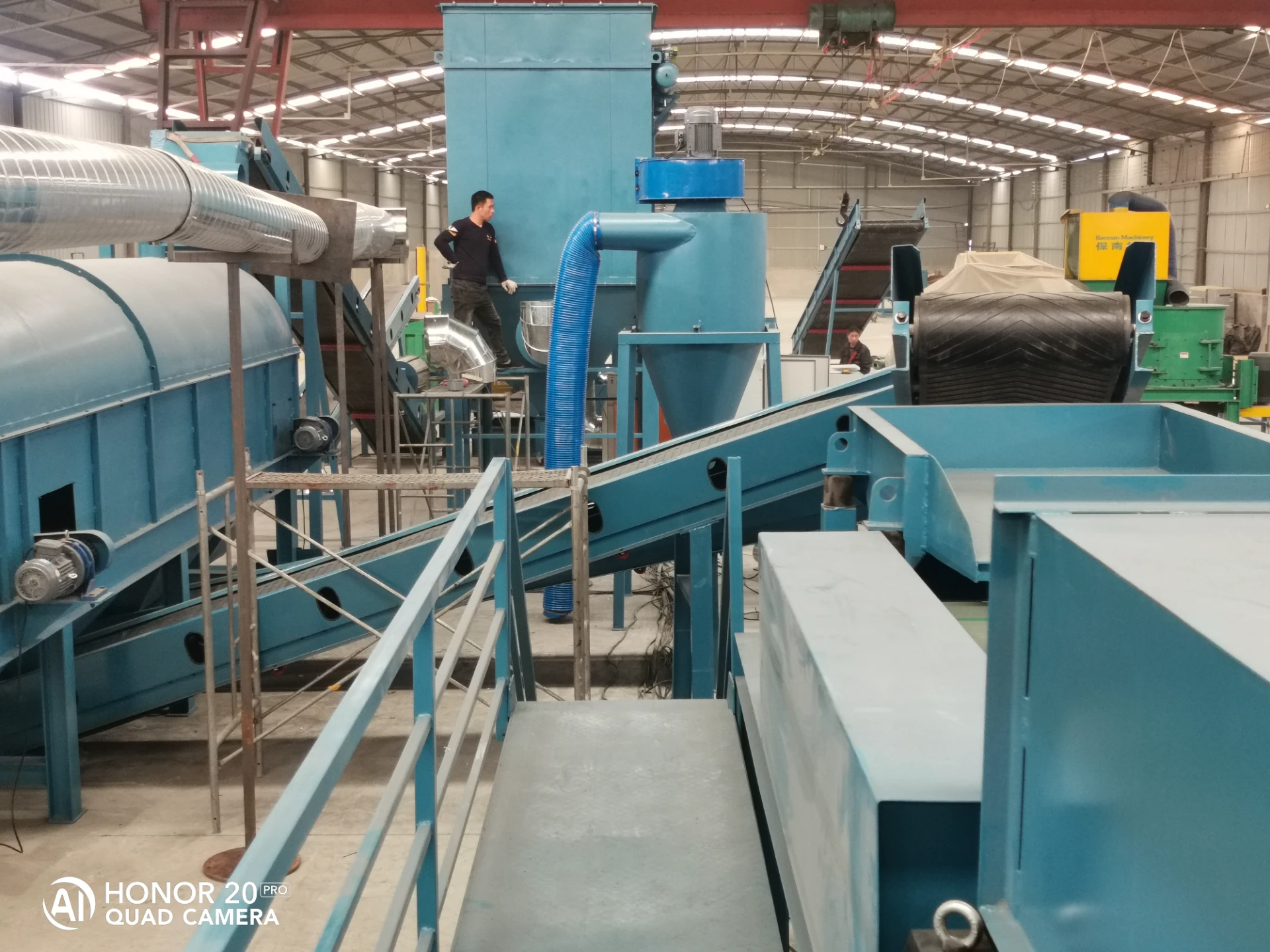

ធ្នូ . 11, 2024 10:20 Back to list
The Importance of MSW Sorting Plants in Modern Waste Management
Municipal Solid Waste (MSW) has become a significant concern for cities worldwide, with increasing urbanization leading to an upsurge in waste generation. The management of this waste is critical for promoting environmental sustainability and public health. One effective solution to address the growing waste crisis is the establishment of MSW sorting plants, which play an indispensable role in the recycling and recovery of materials from waste.
The Role of MSW Sorting Plants
MSW sorting plants are facilities designed to separate different types of waste materials so that recyclable items can be extracted and processed efficiently. These plants utilize various technologies and methods to sort and classify waste into distinct categories, such as plastics, metals, paper, glass, and organic waste. By facilitating the separation of these materials, sorting plants contribute significantly to resource conservation, energy savings, and waste reduction.
Environmental Benefits
One of the primary advantages of MSW sorting plants is their positive impact on the environment. By diverting recyclable materials from landfills, these facilities help reduce the volume of waste that ends up in disposal sites. This is crucial, as landfills not only take up valuable land but also produce harmful emissions, such as methane, a potent greenhouse gas. Moreover, recycling materials through sorting plants reduces the need for virgin raw materials, which in turn conserves energy and reduces pollution associated with resource extraction and processing.
Economic Advantages
In addition to environmental benefits, MSW sorting plants offer significant economic advantages. By increasing recycling rates, these plants contribute to the development of a circular economy, where materials are kept in use for as long as possible. This not only conserves resources but also creates jobs in the recycling and manufacturing sectors. Furthermore, sorted and processed materials can be sold to manufacturers, providing a revenue stream for local governments and waste management companies. In this way, MSW sorting plants can contribute to local economies while promoting sustainable practices.

Technological Advancements
Modern MSW sorting plants employ advanced technologies, such as conveyor belts, shredders, and optical sorting systems, to enhance the efficiency and accuracy of the sorting process. These innovations enable the rapid processing of large volumes of waste while ensuring that valuable materials are not lost. For instance, optical sorting technology uses cameras and artificial intelligence to identify and separate different materials based on their properties. This level of precision not only improves recycling rates but also reduces contamination, ensuring higher quality recyclables for the market.
Community Engagement and Education
For MSW sorting plants to operate effectively, community engagement and education are essential components. Public awareness campaigns can educate residents about proper waste disposal practices, how to reduce waste at the source, and the importance of recycling. When communities are actively involved in waste management efforts, they are more likely to participate in recycling programs, thereby increasing the volume of materials collected for sorting and processing. Partnerships between local governments, businesses, and community organizations can foster a culture of sustainability and encourage responsible waste management practices.
Challenges and Future Directions
Despite the numerous benefits of MSW sorting plants, challenges remain in the implementation and operation of these facilities. Issues such as fluctuating markets for recyclables, contamination of recyclables, and inadequate infrastructure can hinder the effectiveness of sorting plants. To achieve their full potential, ongoing investments in technology, infrastructure, and public education are necessary.
Looking ahead, the future of MSW sorting plants will likely involve further integration of automation and artificial intelligence, continuous improvements in sorting technology, and enhanced collaboration among stakeholders in the waste management sector. By adopting more innovative practices and engaging communities, MSW sorting plants can play a pivotal role in advancing towards more sustainable waste management systems.
In conclusion, MSW sorting plants are essential in modern waste management strategies. They provide valuable environmental, economic, and social benefits, contributing to the creation of a cleaner and more sustainable future. As waste generation continues to rise, investing in and expanding sorting plant capabilities will be crucial in addressing the challenges of municipal solid waste.
Latest news
Troubleshooting Common Eddy Separator Problems
NewsJul.04,2025
The Role of Metal Recycling Plants in Circular Economy
NewsJul.04,2025
The Impact of Recycling Line Pickers on Waste Management Costs
NewsJul.04,2025
Safety Features Every Metal Shredder Should Have
NewsJul.04,2025
How Industrial Shredders Improve Waste Management Systems
NewsJul.04,2025
How Cable Granulators Contribute to Sustainable Recycling
NewsJul.04,2025